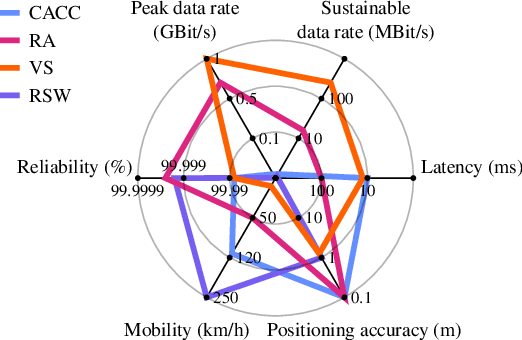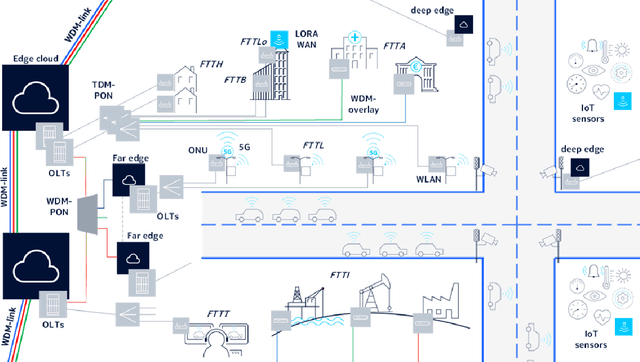André Richter
Transmission-Aware Bandwidth Variable Transceiver Allocation in DWDM Optical Networks
Feb 20, 2022



Abstract:This paper addresses the transmission-aware transceiver allocation problem of flexible optical networks for a multi-period planning. The proposed approach aims at assigning the best configuration of bandwidth variable transceivers (BVTRX) considering the amplifier noise and nonlinear channel interferences using the incoherent Extended Gaussian Noise (EGN) model. The proposed solution improves the network throughput and spectrum utilization in the early planning periods and allocates lower number of BV-TRXs in later periods in comparison to algorithms presented recently. A heuristic approach to regenerator placement has also been applied achieving up to 25% transceiver and 50% spectrum utilization savings in comparison to configurations without regenerators.
KIGLIS: Smart Networks for Smart Cities
Jun 09, 2021


Abstract:Smart cities will be characterized by a variety of intelligent and networked services, each with specific requirements for the underlying network infrastructure. While smart city architectures and services have been studied extensively, little attention has been paid to the network technology. The KIGLIS research project, consisting of a consortium of companies, universities and research institutions, focuses on artificial intelligence for optimizing fiber-optic networks of a smart city, with a special focus on future mobility applications, such as automated driving. In this paper, we present early results on our process of collecting smart city requirements for communication networks, which will lead towards reference infrastructure and architecture solutions. Finally, we suggest directions in which artificial intelligence will improve smart city networks.
 Add to Chrome
Add to Chrome Add to Firefox
Add to Firefox Add to Edge
Add to Edge